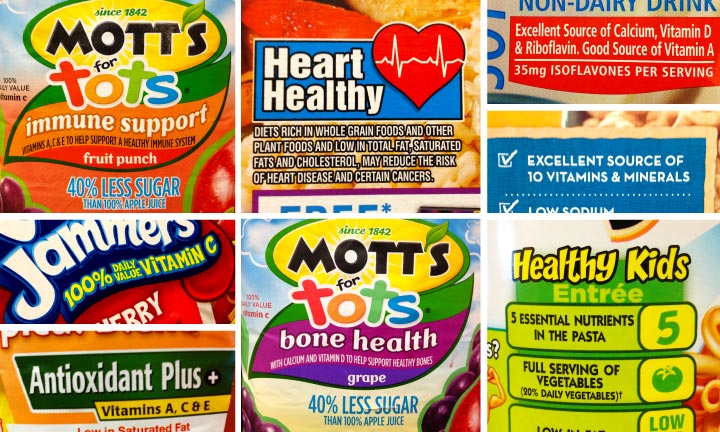The FDA disagrees. Here, now, directly from the FDA ...
Dietary Supplement Labeling Guide
Again, there are exemptions in place (thanks to guys like Hatch) that allow them to ignore some of these rules.
CFR - Code of Federal Regulations Title 21
(a) The label of a dietary supplement that is offered for sale shall bear nutrition labeling in accordance with this regulation unless an exemption is provided for the product in paragraph (h) of this section.
...let's look at (h) shall we...
(h) Dietary supplements are subject to the exemptions specified as follows in:
(1) Section 101.9(j)(1) for foods that are offered for sale by a person who makes direct sales to consumers (i.e., a retailer) who has annual gross sales or business done in sales to consumers that is not more than $500,000 or has annual gross sales made or business done in sales of food to consumers of not more than $50,000, and whose labels, labeling, and advertising do not provide nutrition information or make a nutrient content or health claim;
(2) Section 101.9(j)(18) for foods that are low-volume products (that is, they meet the requirements for units sold in 101.9(j)(18)(i) or (j)(18)(ii)); that, except as provided in 101.9(j)(18)(iv), are the subject of a claim for an exemption that provides the information required under 101.9(j)(18)(iv), that is filed before the beginning of the time period for which the exemption is claimed, and that is filed by a person, whether it is the manufacturer, packer, or distributor,
that qualifies to claim the exemption under the requirements for average full-time equivalent employees in 101.9(j)(18)(i) or (j)(18)(ii),
and whose labels, labeling, and advertising do not provide nutrition information or make a nutrient content or health claim;
You review that statute and find...
(j) The following foods are exempt from this section or are subject to special labeling requirements:
(1)(i) Food offered for sale by a person who makes direct sales to consumers (
e.g., a retailer) who has annual gross sales made or business done in sales to consumers that is not more than $500,000 or has annual gross sales made or business done in sales of food to consumers of not more than $50,000,
Provided, That the food bears no nutrition claims or other nutrition information in any context on the label or in labeling or advertising. Claims or other nutrition information subject the food to the provisions of this section, 101.10, or 101.11, as applicable.
(ii) For purposes of this paragraph, calculation of the amount of sales shall be based on the most recent 2-year average of business activity. Where firms have been in business less than 2 years, reasonable estimates must indicate that annual sales will not exceed the amounts specified. For foreign firms that ship foods into the United States, the business activities to be included shall be the total amount of food sales, as well as other sales to consumers, by the firm in the United States.
Basically, if any of the following is true, they can utilize the "proprietary blend loophole"
- The company is "Direct to Consumer" and makes less than $500k year
- Has fewer than 100 full time employees (which, in an of itself, is a massive loophole)
- Doesn't make a nutrient content or health claim on the packaging
That's why you see the implied claims on the packaging are very vaguely worded so they can "imply, then deny", and these companies will have a staff where the overwhelming majority are "part time" employees with only a few being qualified as full time.
Now, if these exemptions didn't exist, then I'd agree with you that simply enforcing the laws already on the books would be mostly sufficient as that would be enough to shut most of these nonsense-peddlers down.


